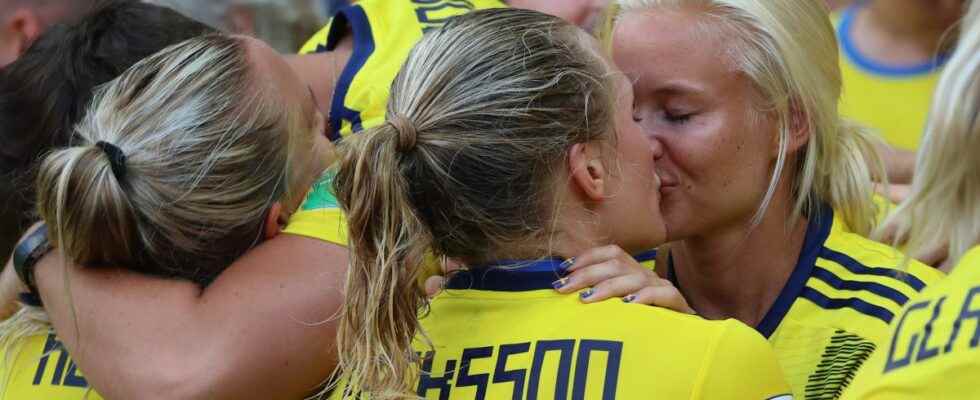There are thousands of problems in the world and one of many is lesbophobia. The rejection of women who do not live life like the majority. However, the naturalness that lesbian soccer players give to this matter is undeniable. At the match Sweden-Canada of the France World Cup that classified the Swedes to the quarterfinals, the defense Magdalena Eriksonat the end of the game, like any other footballer, he ran to the stands to meet his partner, the also footballer Pernille Harder, giving him a kiss to celebrate the pass. It is as if football laughs in the face of all kinds of discrimination.
Also at the Olympics, lesbian athletes are becoming more visible. At least 185 athletes LGBTI competed in the past tokyo games, according to the Outsports count. A fact that demonstrates the leap in visibility that the world of sport has given in recent years. 42 women soccer players, 17 rugby players and 13 basketball players contributed to this. And it is that visibility in sport is still a women’s thing, in a ratio of 9 to 1. There are still many athletes who find it difficult to use the word lesbian to define themselves due to the negative connotation that society has given to this word throughout history. We can see it in any amateur or professional soccer field when the referee is a woman, 90% of all the insults she receives are related to her sexual orientation. Or when a few days ago, the player of Osasuna Ruben Garcia, uploaded a photo to his networks with a bracelet with the LGTBI colors and they riddled him with homophobic insults. Until very recently, lesbians have suffered from one of the worst lesbophobic prejudices: invisibility. We did not appear in any cultural representation. Now things are different. Thanks to the media, TV series, books and especially sports, specifically football, the social conception of being a lesbian has changed a lot. Lesbians are known for what they are: women, mothers, champions… human beings.
But it’s not always that pretty. A Galician friend told me that for this week of lesbian visibility she has tried to organize a round table around sport and did not find players who wanted to talk about it and they are within their rights, but you have to ask yourself what is happening so that they do not feel comfortable doing it. Perhaps they fear the loss of sponsors, the contempt of coaches and the board of directors, the estrangement from colleagues, family disappointment, layoffs… A situation that forces them to live in constant tension and makes it impossible to fight for their sports goals with all the consequences that It carries both personal, economic and social. For this reason, it is very important that we train ourselves in diversity and equality so that sports clubs and federations have in their structure trained people who enrich the club to eradicate all kinds of discrimination. Because racism kills but so does lesbophobia.
